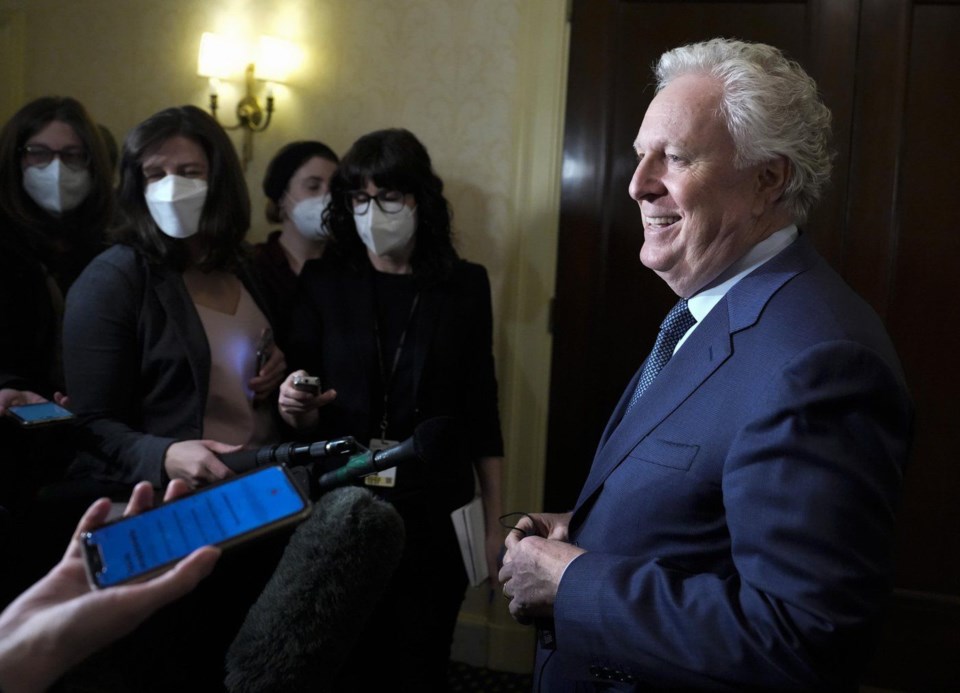As the Conservative leadership race approaches the finish line, polls are starting to show a consistent pattern. Pierre Poilievre can win the party, but only Jean Charest can win the country.
The math and political history behind that conclusion are simple. Let’s start with Quebec.
The House of Commons reserves 78 seats for Quebec MPs. The Conservative Party currently holds only 10 of them. To form a government, it needs to win many more of those seats.
History teaches that its best chance of doing that is with a leader from Quebec.
Just ask Joe Clark, Kim Campbell, Preston Manning, Stockwell Day, Steven Harper, Andrew Scheer, Erin O'Toole or – if he were still alive – Bob Stanfield.
The past 60 years of electoral history have taught us a simple truth about Quebec politics: In federal elections, Quebecers vote for the party led by the person they believe is the best Quebecer in the race.
Quebec voters could have voted Conservative in any of the 16 elections led by any of those fine leaders going back over half a century, but they didn’t.
Party affiliation doesn’t matter. Two Trudeaus, Mulroney, Bouchard, Blanchet. Different parties, different elections, but all strongly endorsed by Quebec voters.
And if there are no “acceptable” home-grown leaders in the race, Quebec voters will even vote for a Quebecer who left home, like “le bon Jack”, Jack Layton!
But Brian Mulroney won 58 of Quebec’s 75 seats in 1984 and 63 in 1988.
Otherwise, the best a Conservative leader has done since the Beatles’ played Ed Sullivan was 13 seats under Harper. And he tried mightily to appeal to Quebec.
However, Quebecers voted to make Charest premier three times and voted for him four times as a Conservative MP, including once as leader of the party.
Those seven wins prove he can win in Quebec. That immediately brings into play the 68 seats the Conservatives do not hold now.
As for Ontario, the Conservatives have a lock on many Ontario seats representing smaller cities and towns, and rural parts of the province.
But there are 53 seats in the Greater Toronto Area (GTA). After the last election, the Conservatives came away with four of them. In the election before that, they won five.
Between Quebec’s 78 and the GTA’s 53, there are 131 seats. The Conservative party currently holds 14 of them.
On top of their current 119 seats in the House of Commons, the Conservatives need another 50 seats to form a majority. Where are they going to get them?
Not in the west. They already win the overwhelming majority of seats there. How about down east? There are 32 seats in total in Atlantic Canada. Even if they won every single one of them, they’d be short by 18.
Quebec and the GTA are where they need to win. Remember the math: between them, Quebec and the GTA have 131 seats. Conservatives hold 14.
If you can’t change that reality, you’ll be on the outside looking in at Jagmeet and Justin until they’ve taxed and spent the country into oblivion.
Some will point out that Harper won a majority government in 2011 with only five seats in Quebec. That’s true. But he did it by flipping 27 seats from the Liberals, thanks to a hapless campaign by Liberal leader Michael Ignatieff.
Most of those 27 seats were in Ontario, particularly ethnically sensitive seats in and around the GTA that came on board largely because of the tireless efforts of Jason Kenney who doggedly worked at building bridges to various ethnic communities.
Think of 2011 as an anomaly. One of 16 elections over a half-century where a non-Quebec leader of the Conservative Party happened to eke out a majority because of his exemplary campaigning, and the particular circumstances of that race.
The polls are now consistently showing that only one Conservative leadership candidate can successfully navigate the political geography and electoral math necessary to win the country.
His name is Jean Charest.
Over to you, fellow Conservatives. In the words of Margaret Thatcher, do you want to “put right what’s left”, or just watch?
Hon. Lawrence Cannon, Hon. Peter Kent and Hon. John Reynolds are former Conservative MPs.



